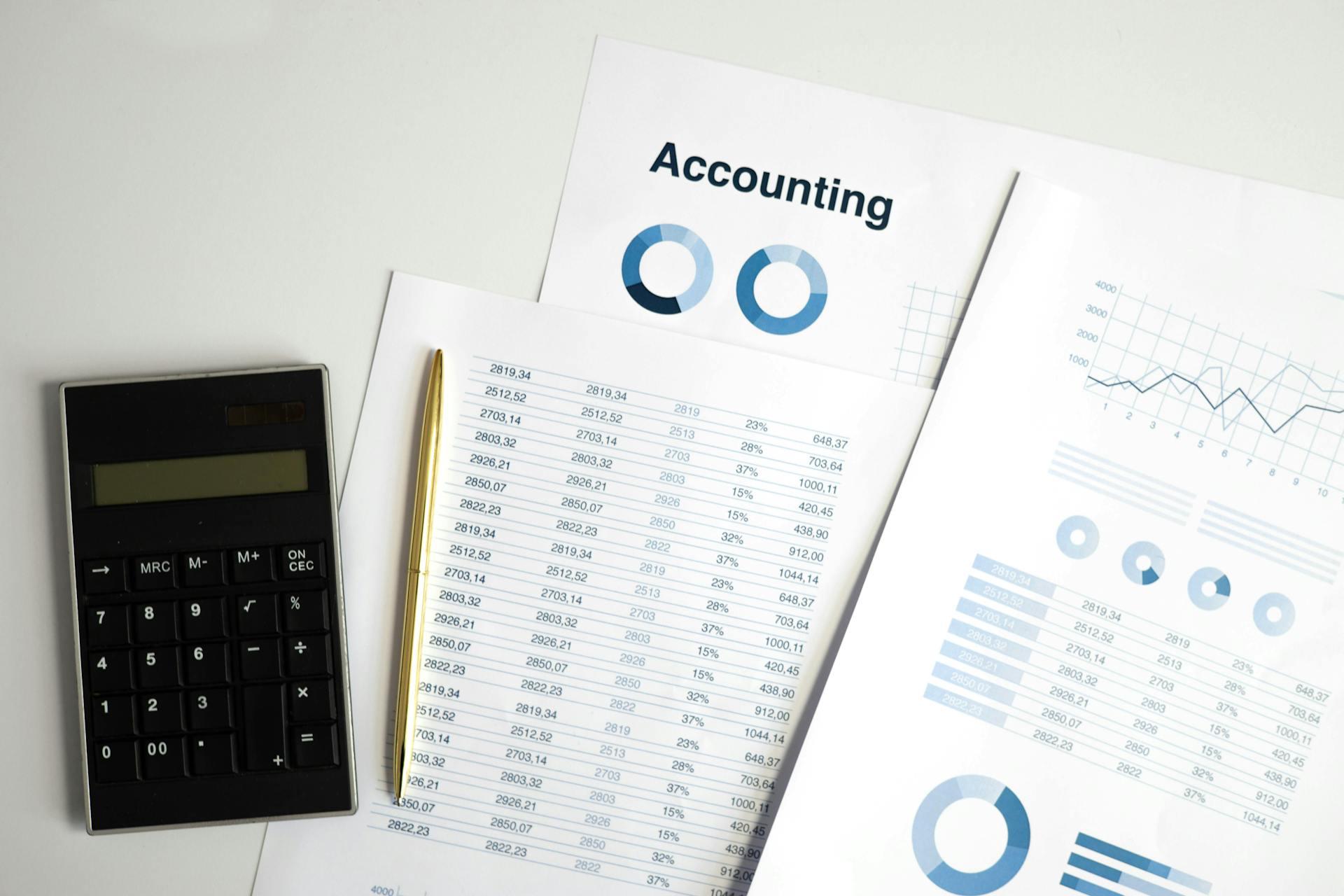Singapore’s thriving finance sector continues to offer some of the most rewarding accounting career options in Asia. Whether you are an aspiring assistant accountant fresh out of university or a seasoned director with years of experience, the city-state’s dynamic industry provides opportunities for every career stage. From multinational corporations to boutique firms, there is a wide range of roles in both commercial and accountancy services.
Many professionals choose permanent positions, while others prefer contract roles that offer a better balance of work and personal time. Depending on your role, annual salary packages can range from entry-level rates to six-figure sums per annum, especially for senior positions such as financial controller or manager. The demand for qualified accountants has remained high, with August job reports showing a steady rise in jobs across sectors like tax, audit, and reporting.
In Singapore, it’s common to find hybrid working arrangements, giving you the flexibility to split your day between home and office. Leading organisations in the business and management space often encourage this approach to attract top talent. Opportunities also extend beyond local borders; for example, Singapore-based accountant roles often involve collaboration with teams in London or other global hubs.
For those ready to join this fast-paced group of professionals, the information you gather about employers, hiring trends, and department structures can be invaluable. Whether you save listings for a new role or explore paths that allow you to grow into a senior job, there’s no shortage of exciting prospects. From entry-level support positions to top management posts, accounting in Singapore offers a future that’s as diverse as the people who make up the profession.

Benefits of Studying Accounting
Learning accounting has many benefits, from knowledge to skills that are transferable to every aspect of life. Let’s look at some right now.
Global Opportunity
Hands down, one of the best things about studying accounting is the job opportunities you can have all around the world. Except for the United States of America, most of the world uses similar accounting standards. This means you have the knowledge to work in the United Kingdom even though you got your qualifications from Singapore. An accountant in Malaysia has the knowledge to work in Singapore. There might be differences in standards from one country to another, but these differences are usually minor.
Problem-solving and Critical Thinking
A few of the most essential skills in the workforce are problem-solving and critical thinking. One of the main reasons these skills are in high demand and, more often than not, a prerequisite to employment is that they enable a company to move on more efficiently and effectively. Companies want people who are able to think critically and solve problems effectively. People who can do these things can handle almost anything their jobs throw at them. Therefore, studying accounting equips you with a highly sought-after and transferable skill that will benefit you no matter what career you choose.
Leadership Skills
An accountant has many duties that run concurrently. To be an effective and efficient accountant, you will need to be able to multitask. When you learn accounting, you will learn how to multitask, and this will help you master being a proactive person. This leads to acquiring the skills necessary to be a good leader. As you start your career in accounting, you will also develop managerial skills that will enable you to climb up the corporate ladder. Leadership and managerial skills, problem-solving, and critical thinking are valuable in accounting and almost all other industries.

Job Stability
In a highly developed technological era, there is a constant fear that Artificial Intelligence (AI) and technology will replace human beings. Many jobs have become obsolete due to technological advancement. Therefore, it is understandable that each person is afraid that what they study will be affected by technology.
Year after year, you might hear rumours about how accountants will be replaced by AI or technology, but this couldn’t be further from the truth. The role of an accountant has changed over the years with technology. There is less tedious work as they are now automated, but the ability to analyse and make decisions is something that is unique to humans.
What Can You Do With an Accounting Degree?
If you understand the crucial role accountants play in every business, you may view accounting as a strong tertiary education choice. Over the years, this degree has opened doors for countless graduates, offering them a variety of career paths. Whether you’re aiming for a permanent role or exploring a contract opportunity, your accounting qualification can help you secure positions that fit your skills and ambitions.
Auditor
One of the most common first steps after graduation is becoming an auditor. This role offers the chance to work closely with a finance team, review financial reporting, and ensure that all statements are accurate and compliant. For a detailed explanation of this career, you can read our guide on what is auditing?.
Auditors generally fall into two categories:
- External auditors – Often employed by an accounting group or firm, these professionals review the accounts of multiple businesses, usually for annual submissions. This process can start as early as August each year and must be completed by a set date in accordance with regulations.
- Internal auditors – Hired directly by a company, they ensure that policies are followed, risks are managed, and opportunities for improvement are identified. Internal auditors often work closely with directors and managers to strengthen processes.
Whether you join as an assistant auditor or quickly move up to a manager role, the position offers both stability and the chance to save valuable insights for future business strategies. The information you gather will help guide decisions that shape the company’s growth year after year.
Tax Consultant
As the name suggests, a tax consultant deals mainly with companies’ and individuals’ tax matters. Tax accountants or consultants specialise in the country’s tax rules and regulations. They can advise, prepare, and file tax submissions on behalf of companies and individuals in a timely manner, ensuring that they minimise their clients’ tax liabilities.
Tax consultants earn well and are always in demand, as the tax rulings in many countries change constantly from year to year.
Management Accountant
The company hires a management accountant to report and analyse data for planning. Unlike a financial accountant, whose role has to do with information required by external parties, a management accountant is more concerned with data and reporting for internal use, whether for department purposes, budgeting, financial planning or analysis. They ensure that the company’s spending is aligned with their budgets. They even come up with budgets and forecasts that are extremely useful for management’s future financial as well as operational planning.
Lecturer
One of the best things about accounting is that you can actually choose to be a lecturer. Unlike most other industries, the accounting field is a little bit different in the sense that, yes, you can do a degree and go straight into teaching and lecturing, but what makes it unique is as you work as an accountant, you can choose to make a career change into teaching. When you have working experience, you will be able to communicate better and provide real-life examples and solutions that will be highly valuable to your students. With your experience, you can expose them to the actual workings of accounting. If you no longer enjoy the fast-paced environment of being an accountant, auditor, forensic accountant and such, you can always transfer these skills to get a high-paying job as a lecturer.

How to Prepare for a Career in Accounting?
If you have decided to start a career in accounting, below is what you must do to achieve it.
Obtain a Degree
Although lower qualifications are acceptable, having a degree in accounting is highly recommended. This degree can be utilised to pursue various accounting positions that will contribute to your professional development. To know more about courses you can pursue, check out A Guide to Finding the Best Accounting Courses in Singapore.
Get a Professional Qualification
This is one of the best things you can do for your accounting career. Once you have obtained your qualification, you not only get paid higher but also get specialised certifications. You can begin by exploring the available accounting programmes in Singapore.

Advantages of Working in Accounting Jobs in Law Firms
For many professionals in finance and accountancy, working in a law firm offers an uncommon blend of analytical depth and sector-specific expertise. These positions require handling accounts, overseeing reporting, and delivering services tailored to the legal industry. A career here can position you alongside leading practitioners while giving you the chance to work on high-profile cases. It’s a role that rewards precision, adaptability, and a commitment to excellence in both business and legal contexts.
Accounting roles in Singapore’s legal sector provide distinctive benefits that set them apart from other commercial or corporate jobs. These advantages can significantly influence career progression and overall job satisfaction.
Key benefits include:
- Specialised Experience – Gain exposure to financial processes unique to the legal sector, such as trust accounts, client fund management, and litigation support. This expertise can lead to senior management opportunities over time.
- High-Value Clients – Work with corporate groups, multinational companies, and high-net-worth individuals based in Singapore and abroad, sometimes collaborating with offices in London.
- Skill Diversification – Balance traditional accountancy work with specialised reporting tasks, including compliance audits and case-related information preparation.
- Career Growth – Advance from assistant or junior roles into manager, controller, or even director positions. Many firms offer both permanent and contract pathways.
- Networking Opportunities – Collaborate daily with lawyers, consultants, and senior partners, enhancing your professional profile in the industry.
- Prestige & Stability – Join well-established firms with reputations built over years, providing a secure working environment and competitive salary packages that can reach six figures per annum.
- Hybrid Work Models – Benefit from flexible arrangements that allow part of your day to be spent working remotely, supporting better work-life balance.
Choosing to join a department in a law firm offers much more than just a steady job. It provides a pathway to develop qualified expertise, enjoy progression opportunities, and contribute meaningfully to high-impact cases. You’ll be part of a support network that values detail-oriented working practices while giving you access to some of the leading legal and financial minds in Singapore.
If you are considering enhancing your skills further and want a competitive edge in these jobs, you may want to explore additional certifications. In that case, check out our article on Best Accounting Certifications in Singapore — it will give you a clear view of how to strategically approach your career in this sector.

How to Find Part-Time Accounting Jobs in Singapore
Finding part-time accounting roles in Singapore is a process that requires careful planning, persistence, and knowledge of where to search. Many employers in the industry prefer candidates who can manage accounts, support reporting, and adapt quickly to dynamic business environments. Whether you’re a student, a returning professional, or someone balancing multiple commitments, the right strategy can make all the difference.
Referrals are one of the most effective ways to access hidden job markets. When someone in a department or team recommends you, hiring managers often see this as a sign of trust and reliability. Building relationships with alumni networks, former colleagues, or group members from professional bodies can open doors to opportunity. This method can be especially effective for qualified accountants or those with prior finance experience.
Having a relevant degree or professional qualification in accountancy or commercial services will set you apart. Even for assistant positions, employers often prefer candidates who understand financial principles and can contribute from day one. Some companies offer contract-based part-time arrangements with a salary calculated on a pro-rata per annum basis, providing flexibility without sacrificing stability.
Popular platforms in Singapore for finding part-time jobs include:
- MyCareersFuture – A government-supported portal with filters for role, sector, and working hours.
- JobStreet and JobsDB – Widely used in Singapore for posting openings in permanent, hybrid, and commercial sectors.
- LinkedIn – Useful for connecting with senior recruiters, managers, and directors in your target industry.
- Indeed – Offers a broad view of new and recent postings, including senior and support roles.
In addition to these job portals, consider going directly to the direct career pages of companies you admire. Many leading firms based in Singapore, from multinational corporations to boutique finance consultancies, advertise new positions exclusively on their own websites. These may include controller roles, manager-level part-time positions, and senior project-based contracts. Setting alerts will allow you to save listings and apply before the date closes.
Direct company websites can also provide more detailed information about the job scope, required skills, and the specific department you’d be working in. This clarity helps you tailor your application and shows employers you’ve done your research.
To make your search more effective, consider these strategies:
- Attend industry events and networking sessions to connect with potential employers.
- Join online communities for accountancy professionals and share your working experience.
- Keep your CV updated with your most recent jobs, support achievements, and relevant certifications.
- Apply early in the year or around August, as companies often refresh part-time openings then.
- Be open to hybrid roles, where part of your day can be spent working remotely.
If you plan strategically and remain persistent, you can join the part-time accountancy workforce in Singapore with confidence. Over time, these efforts can lead to senior positions or even transition into full-time jobs that align with your career goals.

Freelance Accounting Jobs vs Traditional Accounting Roles
In today’s evolving finance sector, professionals have more options than ever when deciding how they want to manage accounts and contribute to a business. Two of the most common career paths are freelance accounting jobs and traditional accounting roles. Each offers distinct opportunity profiles, from flexibility and contract work to permanent stability.
For those aiming to increase their annual salary or broaden their services, understanding the differences is key. Whether you’re a junior assistant or a manager eyeing a shift, this comparison provides valuable information to help you make an informed decision in the year ahead.
Freelance Accounting Jobs
- Flexibility & Schedule: Freelancers can choose their days and working hours, taking on multiple clients in different finance areas. This autonomy is attractive to those who value control over their workload.
- Income Structure: Payment is often project-based or hourly, with potential for higher per-annum earnings if multiple contract projects are secured. Rates can vary depending on skill level and services offered.
- Work Variety: Freelancers often handle diverse accounts, including cross-border work with London or regional firms, enhancing exposure to different groups and team dynamics.
- Career Mobility: Easier to shift between projects, clients, or even industries. This can lead to new opportunity openings more frequently, especially around peak seasons like August.
- Geographical Freedom: Ability to work remotely or for clients abroad, such as firms based in London, without relocation.
- Risk & Stability: No guaranteed salary or job continuity—income can fluctuate from month to month. Requires good business planning and savings management skills.
Traditional Accounting Roles
- Structured Hours: These positions generally require fixed working days and hours, which can provide predictability and stability for those who prefer a routine. This consistency also allows for easier planning of personal commitments and long-term business goals.
- Fixed Salary: A steady salary is provided, often with benefits. Many permanent roles also include bonuses based on reporting accuracy and business performance.
- Specialised Duties: Traditional roles may involve working within one department, focusing on specific controller or manager functions without much variety in accounts.
- Defined Pathway: Promotions to senior or director positions are structured, with clear date milestones. Career movement may be slower, but it offers greater long-term security.
- Location-Based Work: Most permanent roles require you to be physically present at the office, especially in reporting or team-critical finance positions.
- Job Security: Once hired, employees enjoy more stability, making it easier to save and plan annual financial goals.
The choice between freelance and traditional accounting largely depends on your career priorities and personal work style. If you prefer independence, varied accounts, and the flexibility to accept or decline a contract based on your schedule, freelance work could be your ideal opportunity.
On the other hand, if stability, a steady salary, and a clear path to director or manager roles appeal to you, then a permanent position may be better suited. Both paths require strong finance skills, dedication to accurate reporting, and the ability to work effectively in a team or independently.
By reviewing the information above, you can decide which path aligns best with your ambitions and the business direction you want to pursue in the coming year. If you are considering advancing your qualifications, you might also want to explore our guide on the best universities to study accounting in Singapore, which can provide valuable insights for shaping your future career.

What skills do you need to be a successful accountant?
To succeed as an accountant, it’s essential to seek opportunities for continuous learning. Accounting standards evolve with time, and to remain effective in your role, you must stay updated with the latest changes in regulations, practices, and industry trends. Efficiency is equally important—mastering tools like Excel and Power BI can significantly increase your value in the workforce, enabling you to analyse data, prepare reports, and streamline processes more effectively.
Your formal education equips you with the foundational skills, but applying them wisely and strategically will help you advance further in your career. Communication is another critical skill—being able to convey financial information clearly and persuasively can open doors and build lasting professional relationships.
Adaptability is the hallmark of a successful accountant. Keeping an open mind to new technologies, evolving regulations, and innovative financial practices will ensure you remain relevant and competitive. If you are just beginning your journey, our guide to unlock the basics of accounting can help you develop a strong foundation while setting you on the right career path.
If you are preparing for an upcoming examination or simply want to strengthen your accounting skills, hiring a Superprof tutor can be an excellent choice. Our tutors are not only academically qualified but also bring real-world experience, ensuring you gain practical insights alongside theoretical knowledge.
Whether you are a student managing a packed schedule or a working adult balancing a full-time job, our flexible learning options make it easier to achieve your goals. You can decide when and how you’d like to have your lessons, choosing between face-to-face or virtual classes and arranging sessions according to your preferred time and day.
Superprof has earned its reputation for excellence through experienced tutors, tailored learning approaches, and adaptable scheduling. By combining expert guidance with personalised learning, you can accelerate your progress, master accounting concepts, and confidently apply them in both academic and professional settings.















